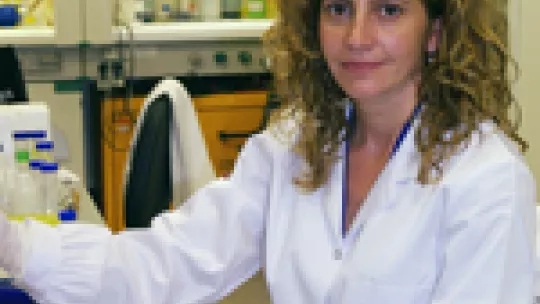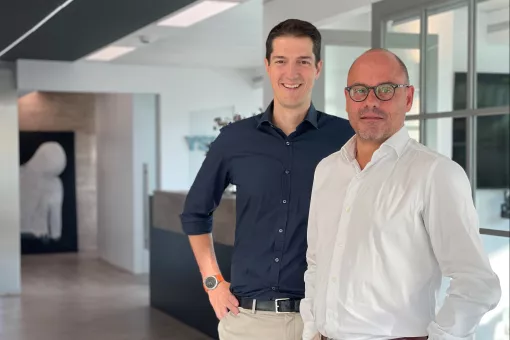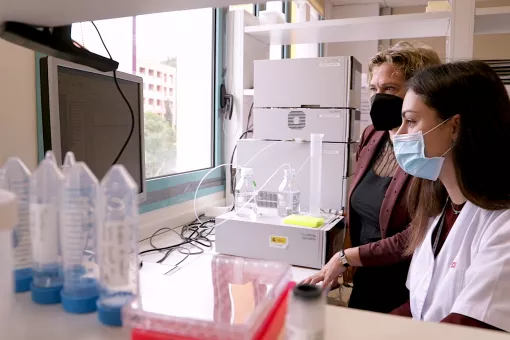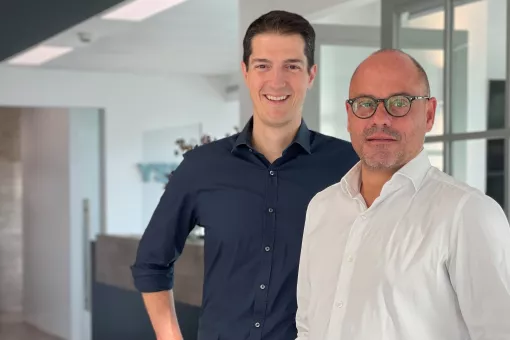Images
Iproteos is developing a drug to treat the symptoms of schizophrenia and has already obtained its first results in animals.
The company has completed a first funding round, achieving more than 100,000 euros, and anticipates a second round of funding from business angels this autumn.
Set up in 2011 as a biotech spin-off from the Institute for Research in Biomedicine and the University of Barcelona, Iproteos has received support from the Ministry of Enterprise and Labour through the Evaluation Units managed by ACC1Ó.
The Catalan company Iproteos, which was set up in June 2011 as a spin-off from the Institute for Research in Biomedicine (IRB Barcelona) and the University of Barcelona, has filed its first patent application for the development of a drug to treat the symptoms of schizophrenia. Supported by the Ministry of Enterprise and Labour through the Evaluation Units managed by ACC1Ó, Iproteos expects to secure a second round of funding to increase its share capital this year.
These results reflect the excellent position enjoyed by the young company, which, in only one year since its start, has grown by five members of staff. An initiative that arose from the IRB Barcelona Peptides and Proteins Lab, a leading lab in chemistry and molecular pharmacology, Iproteos, located also at the Barcelona Sicence Park, is specialized in research into disease of the central nervous system and in the development of third generation drugs —which are more efficient and have fewer side-effects—.
The most advanced project and the one that has produced positive results in animals is the development of a new drug to treat the cognitive deficits that occur in psychotic outbreaks. According to Teresa Tarragó, IRB Barcelona researcher, CEO and cofounder of Iproteos, “the research is at an advanced stage and we expect to have a licence for the drug in 2015”.
The company has recently completed a funding round of 110,000 euros through the so-called 3F method (Family, Fools & Friends), and this autumn it expects to increase its share capital by approximately 200,000 euros through a second funding round involving private investors.
At the end of the year Iproteos will start a new project to address the treatment of Alzheimer’s disease, with the objective to reach five research lines that are simultaneously in the discovery stage.
Evaluations Units
The Evaluations Units run by ACC1Ó are located in universities and business schools in Catalonia. They seek to promote the economic potential of scientific research and production by opening it up to businesses and the market. In the first six months of 2012, these units promoted the set-up of 26 technology companies or spin-offs and the commercialization of 61 new technologies.
ACC1Ó (www.acc10.cat)
Managed by the Ministry of Enterprise and Labour of the Catalan Government, ACC1Ó is the Catalan agency for business competitiveness. Its activities are based on three major mainstays: strengthening innovation, internationalization, and business orientation and strategy, key tools that favour business competition and adaptation to the current economic climate. The company
More information about Iproteos at http://www.iproteos.com/
About IRB Barcelona
The Institute for Research in Biomedicine (IRB Barcelona) pursues a society free of disease. To this end, it conducts multidisciplinary research of excellence to cure cancer and other diseases linked to ageing. It establishes technology transfer agreements with the pharmaceutical industry and major hospitals to bring research results closer to society, and organises a range of science outreach activities to engage the public in an open dialogue. IRB Barcelona is an international centre that hosts 400 researchers and more than 30 nationalities. Recognised as a Severo Ochoa Centre of Excellence since 2011, IRB Barcelona is a CERCA centre and member of the Barcelona Institute of Science and Technology (BIST).






